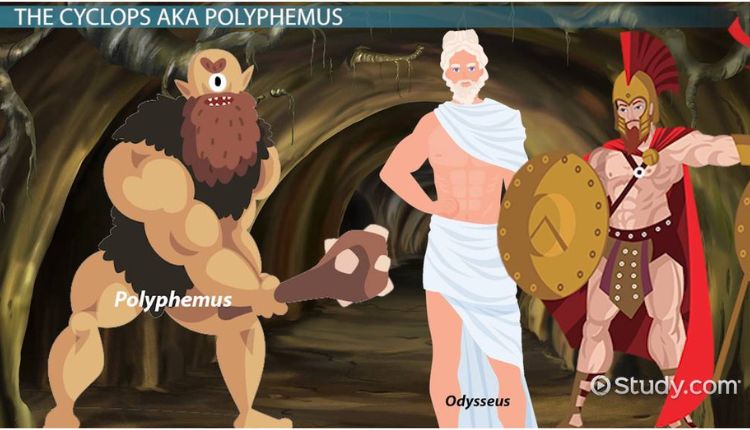Unveiling the Ancient Greek Notion of Home in The Odyssey
which excerpt from the odyssey best shows that the ancient greeks greatly valued the idea of home?Imagine a world where the concept of home was not just a physical space but a cherished ideology. In Homer’s epic poem, “The Odyssey,” the ancient Greeks beautifully encapsulated their profound value for the idea of home. Let’s embark on a journey through the verses of this timeless classic to discover which excerpt resonates most with the Greek sentiment of home.
The Essence of Home in Ancient Greece
Home: More Than Walls and Roofs
In ancient Greece, home was not merely a structure but a sanctuary of identity, love, and belonging. It was a place where the heart found solace and the spirit thrived. The Odyssey unfolds this definition of home through its characters and narratives.
Navigating the Waves of Odysseus’s Journey
- Odysseus’s Longing: A Sailor’s Heartache
In the Odyssey, we witness Odysseus’s relentless yearning for his homeland, Ithaca. The excerpt where he gazes at the horizon, dreaming of the familiar shores, vividly illustrates the profound connection the Greeks had with their native land.
- Penelope’s Faithful Vigil: The Hearth Keeper
Penelope, Odysseus’s wife, symbolizes the unwavering commitment to the home front. Her patient waiting and the metaphorical ‘hearth-keeping’ during her husband’s absence emphasize the Greek belief in the stability and importance of the household.
The Symbolism of Ithaca
- Ithaca: Beyond Geographical Boundaries
“Ithaca” in “The Odyssey” transcends its geographical existence. It becomes a symbol of aspirations, values, and the destination of the soul. Exploring this metaphorical journey unveils the Greeks’ philosophical attachment to the idea of home.
- Telemachus’s Growth: Nurtured Roots
Telemachus, Odysseus’s son, undergoes significant growth throughout the epic. The passage depicting his realization of the importance of home reflects the ancient Greek belief in passing down values and preserving the sanctity of the family.
The Haven of Hospitality
- Xenia: Home in the Hearts of Strangers
The ancient Greeks highly valued hospitality, known as “xenia.” The episode where Odysseus receives warm hospitality from strangers underlines the universal sense of home that extended beyond individual households.
- Circe’s Island: A Temporary Abode
Circe’s enchanting island serves as a temporary home for Odysseus and his crew. This encounter emphasizes the Greeks’ acknowledgment of the diverse forms home could take, reflecting adaptability and acceptance.
Confronting Challenges to Defend Home
- Sirens’ Temptation: Resisting the Lure of Distractions
The Sirens’ episode showcases the Greeks’ belief in staying true to core values despite external temptations. This resonates with the idea that home is not just a destination but a set of principles that guide one through life’s challenges.
- The Suitors’ Invasion: Protecting the Sanctity
The invasion of suitors in Odysseus’s home underscores the Greeks’ commitment to defending the sanctity of the household. This resonates with their collective responsibility to safeguard the values embedded in their homes.
Returning Home: A Hero’s Triumph
- Odysseus’s Return: A Hero’s Homecoming
The triumphant return of Odysseus to Ithaca symbolizes the Greeks’ belief in the eventual triumph of righteousness. It reinforces the idea that home is not just a place but a reward for enduring hardships and staying true to one’s principles.
- Recognition by the Dog: Loyalty Rewarded
The emotional reunion with Odysseus’s loyal dog further accentuates the Greeks’ appreciation for loyalty and the enduring bonds that define the essence of home.
Conclusion: A Tapestry of Greek Ideals
In “The Odyssey,” every verse weaves a tapestry of Greek ideals surrounding the concept of home. From Odysseus’s yearning to Penelope’s steadfastness, and the symbolism of Ithaca, the ancient Greeks left an indelible mark on how we perceive and value the sanctuary of home.
Frequently Asked Questions
Q1: Which episode in “The Odyssey” best exemplifies the Greek love for home?
A1: The episode where Odysseus gazes at the horizon, yearning for Ithaca, encapsulates the Greek sentiment of profound connection and love for home.
Q2: Why is Penelope’s role crucial in understanding the ancient Greek notion of home?
A2: Penelope symbolizes unwavering commitment and ‘hearth-keeping,’ embodying the Greek belief in the stability and importance of the household.
Q3: How does Ithaca serve as a metaphor in “The Odyssey”?
A3: Ithaca becomes a symbol of aspirations and the destination of the soul, reflecting the Greeks’ philosophical attachment to the idea of home.
Q4: What is the significance of hospitality in ancient Greek culture, as depicted in “The Odyssey”?
A4: Hospitality, or “xenia,” is highly valued, showcasing the universal sense of home that extended beyond individual households.
Q5: Why is Odysseus’s return to Ithaca considered a hero’s triumph in Greek mythology?
A5: Odysseus’s return symbolizes the Greeks’ belief in the eventual triumph of righteousness and the reward for enduring hardships in defense of home.




